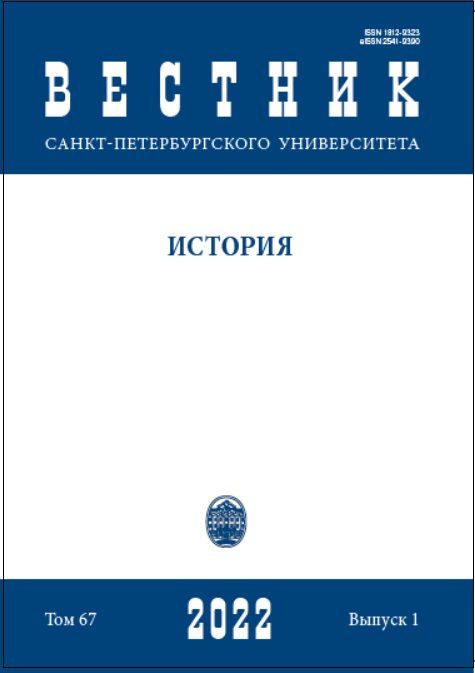Trade Activities and the Spread of Christianity by Portugal During the 16th and 17th Centuries: a Study in Faifo Port (Vietnam)
DOI:
https://doi.org/10.21638/11701/spbu02.2022.109Abstract
In the 16th and 17th centuries, Faifo (Hoi An city, Quang Nam province) emerged as one of the busiest international trading ports in Southeast Asia in general and Vietnam in particular. At the same time, in Europe, Portugal and its formidable navy discovered a new maritime route to Asia. Using this knowledge, the Portuguese became one of the first Western states to explore and lay the foundation for trade and missionary activities in a number of different countries and locations on this continent. Among them, Faifo (in Vietnam) was a notable example. In fact, for almost a century (from the second half of the 16th century to the middle of the 17th century), the Portuguese established business relationships and played an important role in trading activities in Faifo. Meanwhile, the Portuguese Crown strongly supported the Jesuit priests, aiding them in becoming the first Catholic missionary force established in Vietnam, thereby laying the foundation for the introduction and spread of Christianity in Faifo as well as to other locations around Cochinchina. However, at the end of the 17th century, for a number of different factors, Portugal gradually lost its important role trading and missionary activities in the port of Faifo. This article examines the Portuguese commercial and missionary activities in the port of Faifo in the 16th and 17th centuries. This article is intended to make a specific contribution in clarifying the exchange relationship between Vietnam and Portugal in the 16th and 17th centuries.
Keywords:
Faifo, the Jesuits, Portugal, commerce, missionary, Cochinchina, Vietnam
Downloads
References
Downloads
Published
How to Cite
Issue
Section
License
Articles of "Vestnik of Saint Petersburg University. History" are open access distributed under the terms of the License Agreement with Saint Petersburg State University, which permits to the authors unrestricted distribution and self-archiving free of charge.





